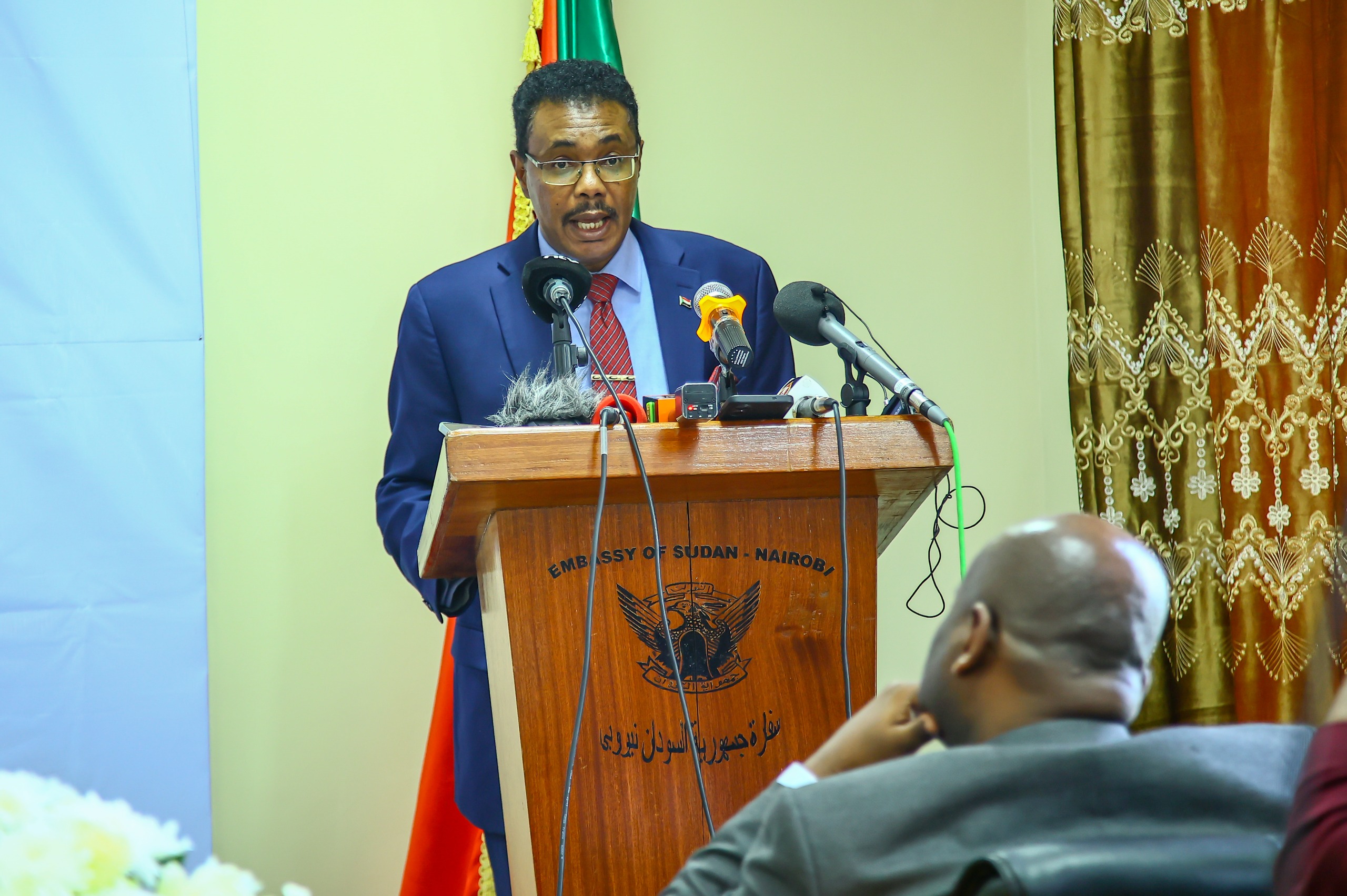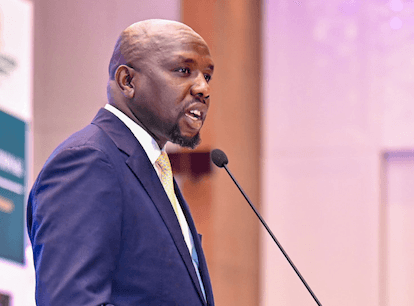 Sudanese ambassador to Kenya, Mohamed Osman Akasha addressing a press conference in Nairobi/HANDOUT
Sudanese ambassador to Kenya, Mohamed Osman Akasha addressing a press conference in Nairobi/HANDOUTSudan has decried lack of support from neighbouring countries and the international community to end the brutal conflict ravaging the country.
Sudanese ambassador to Kenya Mohamed Osman Akasha, while briefing the media in Nairobi about the situation in El Fashir, said the world has failed to take concrete steps to stop the Rapid Support Forces (RSF) from committing atrocities in Sudan.
“If the international community truly wishes to demonstrate its commitment to peace and humanity in Sudan, it must act decisively to stop the flow of weapons, mercenaries, and financing to this militia,” Akasha said.
“Existing arms embargoes must be enforced, and all those enabling such grave violations must be held accountable.”
Akasha described the situation in El Fasher as “catastrophic,” noting that when the Sudanese Armed Forces (SAF) withdrew from the city on October 26 in an effort to protect civilians from “mayhem and total annihilation,” the RSF “moved in and unleashed a campaign of pure extermination.”
Citing remarks by UN Assistant Secretary-General for Africa Martha Akyaa, Akasha said the situation in El Fasher was described at the UN Security Council as “simply horrifying.”
He also referenced a warning from UN High Commissioner for Human Rights Volker Türk, who said there were credible reports of large-scale, ethnically motivated atrocities.
The United States, United Kingdom, France, and Germany have called on the RSF to immediately halt attacks on civilians, warning that commanders and foreign backers could face accountability for war crimes.
“Despite these appeals, the RSF continues to defy international law, emboldened by the inaction of the international community,” Akasha said.
The ambassador’s remarks come days after the World Health Organization (WHO) condemned attacks on medical facilities in Sudan, including an assault on the Saudi Maternity Hospital in El Fasher, which reportedly left numerous patients and visitors dead or injured.
WHO Director-General Dr. Tedros Adhanom Ghebreyesus described the incident as “appalling and deeply shocking,” calling it a clear violation of international humanitarian law.
“All attacks on health care must stop immediately and unconditionally,” Tedros said in a statement.
Ambassador Akasha urged the United Nations to take stronger action, including imposing sanctions and pursuing accountability for those responsible for atrocities in Sudan.
“Those behind the violence must be held personally accountable for war crimes, crimes against humanity, and genocide,” he said. “Silence is complicity, inaction is betrayal.”
He called on the international community, human rights organizations, and the media to “bear witness, tell the truth, and expose the perpetrators.”
“Sudan does not ask for sympathy — it demands justice,” Akasha declared. “Our people have endured unimaginable pain, but they have not lost their dignity, nor their faith in justice. Sudan will not surrender to terror.”




















